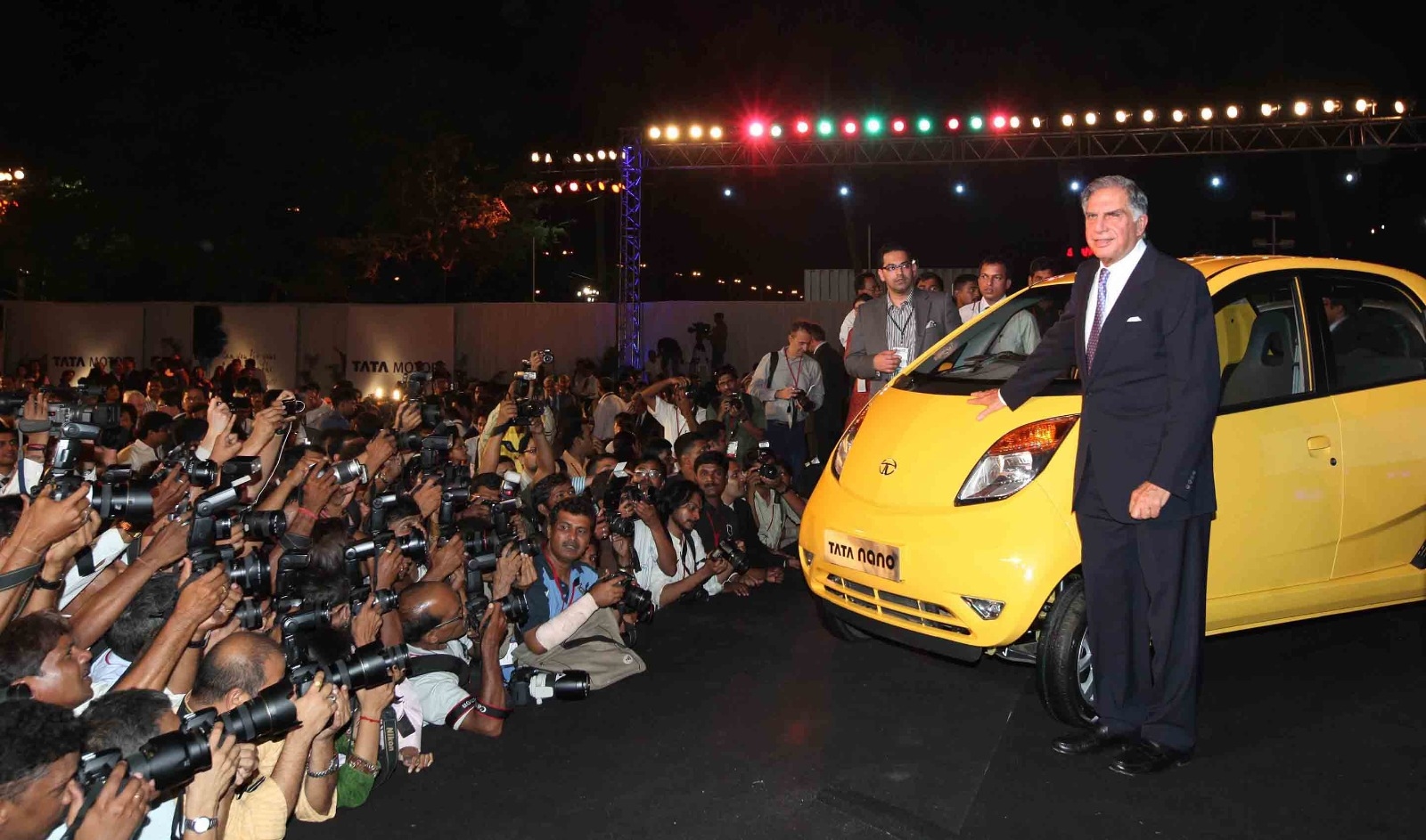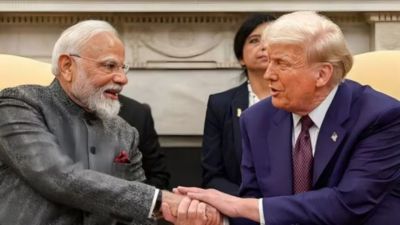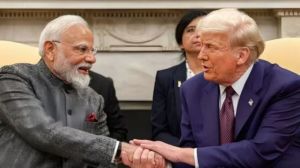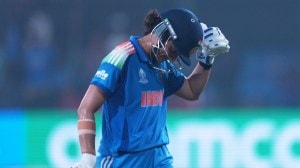Ratan Tata: All you need to know about Indian Icon’s achievements, contributions, awards, and more
Ratan Tata Awards: Tata's legacy is one of transformative leadership marked by significant achievements in business and philanthropy.
 Ratan Tata Achievements: Know about Tata's Recognitions, Honors, Accomplishments, and Contributions to the Growth of India's Economy: Tata was committed to social welfare, directing 65% of the company's profits to charitable trusts for education, healthcare, and rural development. (Reuters)
Ratan Tata Achievements: Know about Tata's Recognitions, Honors, Accomplishments, and Contributions to the Growth of India's Economy: Tata was committed to social welfare, directing 65% of the company's profits to charitable trusts for education, healthcare, and rural development. (Reuters)Ratan Tata Achievements: Ratan Tata, 86, the beacon of India Inc., breathed his last at Breach Candy Hospital in Mumbai Wednesday night. The former chairman of the Tata Group, transformed the conglomerate into a global powerhouse, significantly impacting both industry and society.
“For the Tata Group, Mr. Tata was more than a chairperson. To me, he was a mentor, guide and friend. He was inspired by example. With an unwavering commitment to excellence, integrity, and innovation, the Tata Group under his stewardship expanded its global footprint while always remaining true to its moral compass,” said N Chandrasekaran, Chairman of Tata Group, in a statement announcing his death.
Tata’s legacy is one of transformative leadership marked by significant achievements in business and philanthropy. His visionary approach and contributions have left an indelible mark on both the economy and society at large.
Here’s all you need to know about his early years, achievements, recognitions and contributions.
Ratan Tata’s Early Years:
 Ratan Tata
Ratan Tata
Ratan Naval Tata was born on December 28, 1937, in Bombay, now Mumbai, into the famed Tata family, one of India’s most famous commercial families. He was adopted by his grandmother, Navajbai Tata after his parents separated in 1948.
He obtained a degree in architecture from Cornell University, followed by a management program at Harvard Business School.
Ratan Tata’s Career Trajectory:
Ratan Tata joined the Tata Group in 1961, starting at the grassroots level with his initial work on the shop floor of Tata Steel in Jamshedpur.
Tata took over as the Chairman of Tata Sons in 1991 from his uncle, the legendary JRD Tata, who was at the centre of many a battle in Bombay House, the headquarters of the Tata group.
He served as the Chairman of the major Tata companies, including Tata Motors, Tata Steel, Tata Consultancy Services, Tata Power, Tata Global Beverages, Tata Chemicals, Indian Hotels, and Tata Teleservices.
Under his leadership, the conglomerate underwent significant transformation, expanding its global footprint and diversifying into various industries, including steel, automobiles, information technology, and hospitality, growing from an annual revenue of approximately $5 billion to nearly $100 billion.
Tata’s visionary business strategy led to landmark acquisitions like Toyota (UK), Corus (UK), and Jaguar Land Rover (UK), solidifying its international reputation.
In 1996, Tata Teleservices was launched, marking the group’s entry into a rapidly growing industry.
Ratan Tata’s Milestones:
In 1998, under Ratan Tata’s leadership, Tata Motors introduced the Tata Indica, an important turning point in Indian automotive history.
This was India’s first indigenously designed passenger automobile, which transformed the country’s automotive industry.
The acquisition of VSNL (Videsh Sanchar Nigam Limited) in 2002 cleared the door for Tata Communications, expanding the group’s telecommunications capabilities.
 Ratan Tata at Nano launch at Parsi Gymkhana
Ratan Tata at Nano launch at Parsi Gymkhana
In 2008, Ratan Tata’s ambition of making vehicles cheap for the public was realised with the introduction of the Tata Nano, which was notably priced at Rs 1 lakh.
This technical marvel sought to make automobile ownership possible for more Indian families.
Tata Global Beverages partnered with Starbucks in 2012, considerably extending its worldwide presence in the coffee market.
Ratan Tata’s Philanthropy and Awards:
Tata was committed to social welfare, directing 65% of the company’s profits to charitable trusts for education, healthcare, and rural development.
His initiatives significantly impacted lives across India. Despite retiring in 2012, Tata remained active in the group and its philanthropic initiatives.
 Then President Pratibha Devisingh Patil presented the Padma Vibhushan to Ratan Naval Tata in 2008. (Source: Wikipedia)
Then President Pratibha Devisingh Patil presented the Padma Vibhushan to Ratan Naval Tata in 2008. (Source: Wikipedia)
His contributions earned him numerous accolades, as mentioned below:
| Year | Award | Awarding Body |
| 2000 | Padma Bhushan | Government of India |
| 2001 | Honorary Doctor of Business Administration | Ohio State University |
| 2004 | Medal of the Oriental Republic of Uruguay | London School of Economics and Political Science |
| 2007 | Carnegie Medal of Philanthropy | Carnegie Endowment for International Peace |
| 2008 | Padma Vibhushan | Government of India |
| 2008 | Honorary Doctor of Law | University of Cambridge |
| 2008 | Honorary Doctor of Science | Indian Institute of Technology Bombay |
| 2008 | Honorary Doctor of Science | Indian Institute of Technology Kharagpur |
| 2008 | Honorary Citizen Award | Government of Singapore |
| 2008 | Honorary Fellowship | The Institution of Engineering and Technology |
| 2008 | Inspired Leadership Award | Indian Affairs India Leadership Conclave |
| 2013 | Ernst and Young Entrepreneur of the Year – Lifetime Achievement | Ernst & Young |
| 2013 | Honorary Doctor of Business Practice | Carnegie Mellon University |
| 2014 | Honorary Doctor of Business | Singapore Management University |
| 2014 | Sayaji Ratna Award | Baroda Management Association |
| 2014 | Honorary Knight Grand Cross of the Order of the British Empire (GBE) | Queen Elizabeth II |
| 2014 | Honorary Doctor of Laws | York University, Canada |
| 2015 | Honorary Doctor of Automotive Engineering | Clemson University |
| 2015 | Sayaji Ratna Award | Baroda Management Association, Honoris Causa, HEC Paris |
| 2016 | Commander of the Legion of Honour | Government of France |
| 2018 | Honorary Doctorate | Swansea University |
| 2021 | Assam Baibhav | Government of Assam |
| 2022 | Honorary Doctorate of Literature | HSNC University |
| 2023 | Honorary Officer of the Order of Australia | King Charles III |
| 2023 | Udyog Ratna | Government of Maharashtra |





- 01
- 02
- 03
- 04
- 05


























